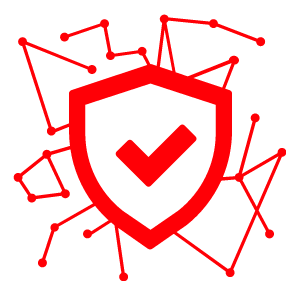Blockchain technology has garnered significant attention worldwide due to its potential to transform various industries, including finance, supply chain management, healthcare, and governance. While developed nations have been at the forefront adoption, the technology’s impact in developing countries holds immense potential. This article explores the potential benefits and challenges associated with blockchain adoption in developing countries, highlighting the various aspects that shape this issue.
Financial Inclusion and Remittances
One of the primary advantages technology in developing countries is its potential to promote financial inclusion. Many individuals in these countries lack access to traditional banking services, but with blockchain, they can access secure and transparent financial systems. Digital currencies enable peer-to-peer transactions, allowing individuals to send and receive funds, bypassing the need for intermediaries. Additionally, blockchain-based remittance systems can significantly reduce transaction costs and streamline cross-border payments, benefitting both migrants and their families.
Supply Chain Management and Counterfeit Goods
Technology offers a robust solution for improving supply chain management in developing countries. By creating a transparent and immutable record of transactions, he enables traceability throughout the supply chain. This transparency helps combat issues like counterfeit goods, ensuring product authenticity and protecting consumers. Developing countries, known for their rich agricultural and artisanal sectors, can leverage this to enhance trust, create fair trade practices, and gain a competitive advantage in the global market.
Land and Property Rights
Securing land and property rights is a significant challenge in many developing countries. Inefficient land registries and corrupt practices often lead to land disputes and hinder economic development. He can revolutionize land and property management by providing a decentralized, tamper-proof system for recording ownership records.
Public Services and Identity Management
Countries often struggle with inefficient public service delivery and lack of proper identification systems. By creating digital identities on a blockchain, individuals can securely store and control their personal information, making it easier to access and verify public services.
Infrastructure and Technical Challenges
While technology offers immense potential, its adoption in developing countries faces several challenges. Limited internet connectivity, especially in rural areas, poses a significant hurdle to widespread adoption. The energy requirements of blockchain networks are also a concern, as developing countries may lack the necessary infrastructure to support energy-intensive operations. Furthermore, developing the technical expertise required for implementing and maintaining systems can be a challenge in regions where technological literacy is low.
In recent years, the use of computers and technology has become an increasingly popular tool in both developed and developing countries. Unfortunately, many people are unable to take advantage of its potential due to lack of access or limited knowledge. To bridge this gap, there is a dire need for increased computer literacy in these countries.
Computers are essential tools for communicating, accessing information and resources, and managing daily tasks. They can help individuals increase their productivity, find employment opportunities, and gain access to education. With increased literacy, people in third world countries can become more competitive in the global economy and participate in a range of activities that may have been otherwise inaccessible.
Schools and universities should prioritize teaching coding, web development, computer maintenance, and other essential skills related to computers. Additionally, community centers can offer free courses to those who cannot attend school or do not have access to computers .
In addition to education and training, governments can also provide access to internet services in various public spaces. This could include libraries, community centers, or even in rural areas. Providing low-cost internet access is essential for individuals to take advantage of the available resources and opportunities online. Governments can also offer tax incentives or subsidies for businesses that purchase and use computers in their operations.
Regulatory and Legal Framework
Governments must strike a balance between promoting innovation and protecting consumers and investors. Clear regulations that address issues such as data privacy, digital asset classification, and smart contract enforcement are essential to instill confidence. Collaborations between governments, industry stakeholders, and international organizations can facilitate the development of appropriate frameworks tailored to the specific needs of developing countries.
She holds significant promise for developing countries, offering transformative solutions across various sectors. From promoting financial inclusion and enhancing supply chain management to improving public services and securing property rights, he can empower individuals and drive economic growth. However, challenges such as limited infrastructure, technical expertise, and regulatory frameworks must be addressed to fully realize the potential of blockchain adoption in developing countries.

